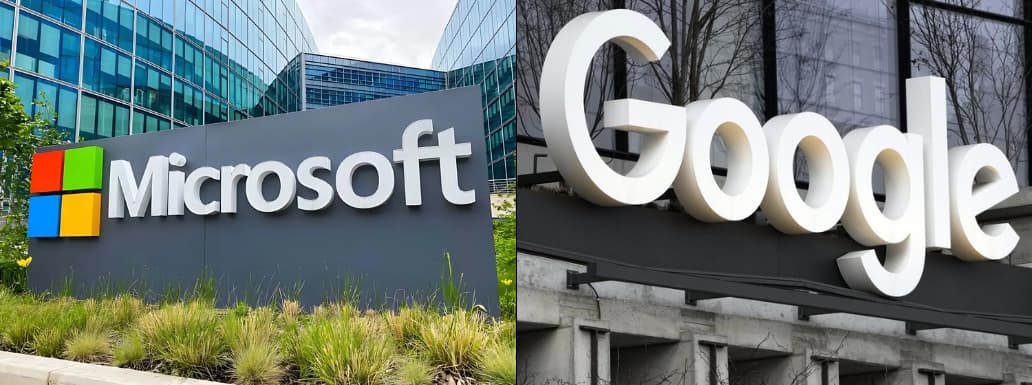Thursday 17 April 2025
FTC’s Tussle with Tech Giants: Google Targets Microsoft’s OpenAI Agreement
Share

The U.S. Federal Trade Commission (FTC) is at the center of escalating tensions between tech titans Google and Microsoft, as it investigates allegations of monopolistic practices in key technology sectors. Recently, Google has taken the step of urging the government to break up Microsofts exclusive agreement to host OpenAIs technology on its Azure cloud computing servers. This development comes amidst broader antitrust probes into the practices of both companies.
According to reports, Google raised concerns after the FTC questioned it about Microsofts business practices during an ongoing investigation. Google and other competitors, such as Amazon, have argued that Microsofts exclusive arrangement with OpenAI limits fair access to transformative AI technologies. They contend that this arrangement forces customers to rely on Microsofts servers to utilize OpenAIs models, adding costs for businesses not already using Microsofts cloud infrastructure.
By tying access to OpenAIs advanced AI modelssuch as ChatGPT, DALLE, and Codexto its Azure cloud infrastructure, Microsoft allegedly forces businesses to use its servers, with additional charges for those operating outside the Microsoft ecosystem.
Microsofts partnership withOpenAIhas strengthened its position in artificial intelligence, as technologies like ChatGPT become increasingly embedded in its products. Critics claim this strategy consolidates Microsofts AI dominance, leaving little room for rival developers to compete on equal footing.
Microsofts dominance is not confined to artificial intelligence. The FTC is also scrutinizing its practices in cloud computing, software licensing, and cybersecurity. Competitors have complained about bundling practices that tie Microsofts services together, such as combining its cloud offerings with essential software licenses. This bundling, they argue, restricts opportunities for independent providers and strengthens Microsofts control over enterprise IT ecosystems.
For Microsoft, its Azure cloud platform is a linchpin of its enterprise strategy, powering a significant share of public and private sector operations. The integration of OpenAI technologies has bolstered Azures appeal, further cementing its influence in the cloud market.
Google, however, is not without its legal troubles. The FTC and the Department of Justice (DOJ) have targeted the companys dominant role in search engines and its Chrome browser. Regulators argue that Chromes integration with Google Search locks users into Googles ecosystem, making it difficult for competitors to challenge its search engine dominance.
The DOJ has also scrutinized Googles investments in artificial intelligence, citing concerns that its stakes in AI firms could unfairly bolster its position in search and related markets. Googles Gemini AI, a potential rival to OpenAIs models, is reportedly being positioned for integration with flagship devices from major phone manufacturers.
Both companies face significant risks as the FTC and DOJ intensify their efforts to curb monopolistic practices. The FTCs actions come as part of a broader regulatorycrackdown by the Biden administration, which has pursued legal action against some of techs largest players since 2020. Companies like Meta, Amazon, Apple, and Binance have faced complaints and costly settlements as the administration has sought to curb monopolistic practices and enhance market competition.
The administrations regulatory push, now reaching its end ahead of President-elect Donald Trumps term, has targeted high-profile deals and mergers as it wraps up four years of aggressive antitrust enforcement. Observers speculate that the incoming administration may adopt a softer stance, potentially easing pressures on Big Tech.
The investigations signal a broader push to ensure that advancements in artificial intelligence, cloud computing, and other critical technologies remain accessible and competitive.
For consumers, the outcomes of these investigations could reshape the technology landscape. Breaking up exclusive agreements, such as Microsofts partnership with OpenAI, is aimed at democratizing access to cutting-edge AI tools. Similarly, addressing Googles integration of Chrome and its search engine is for fostering more competition in the browser and search markets, potentially spurring innovation.
Newsletter
Stay up to date with all the latest News that affects you in politics, finance and more.